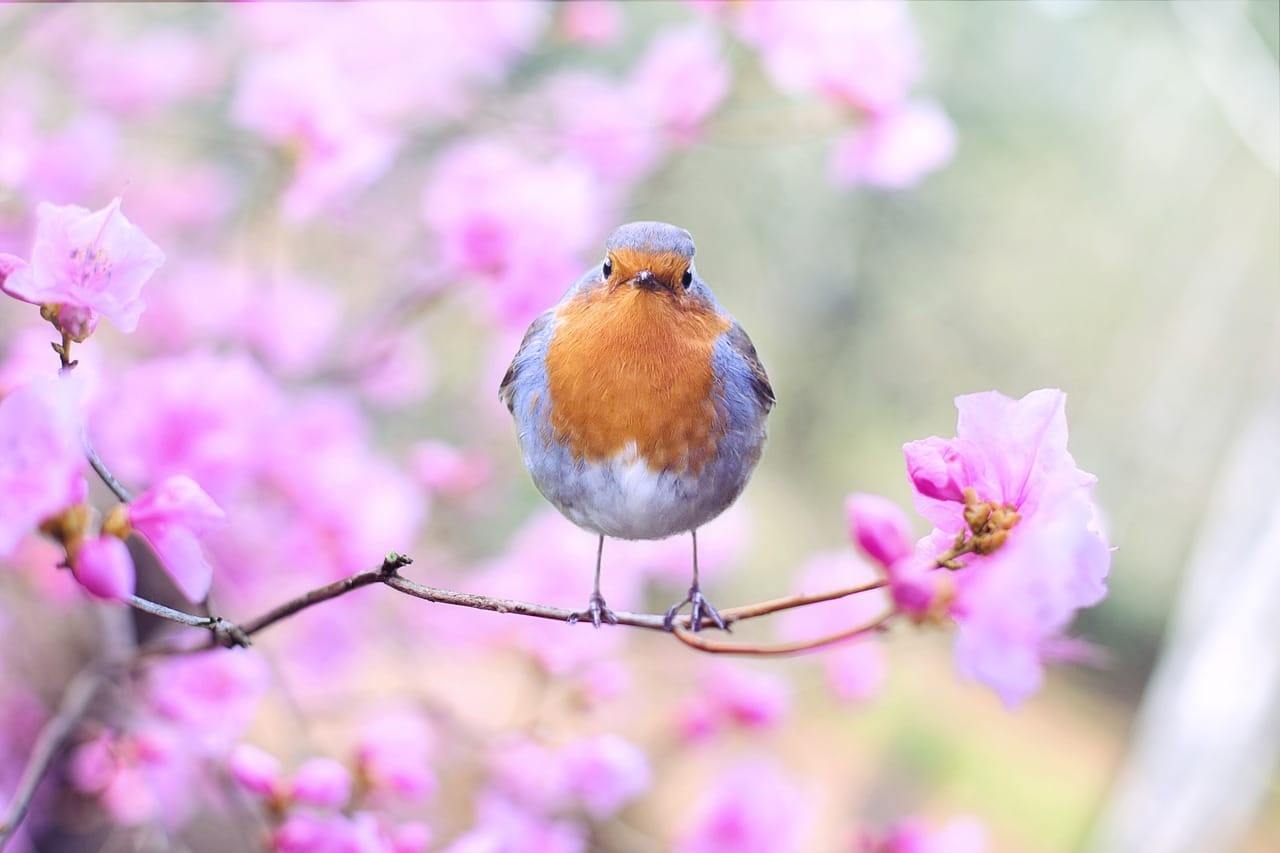How to Detect and Treat Anxiety Disorders in Pet Birds?

As a pet owner, you understand the joy and happiness that your feathered friends bring into your life. However, owning birds such as parrots or other avian species isn’t always a walk in the park. It requires diligent care, and part of that care involves understanding and managing any potential health issues that may arise. One often overlooked but increasingly prevalent issue is anxiety disorders in birds. How do you recognize and address signs of stress and anxiety in your avian companions? Read on to get valuable insights on this topic.
Recognizing Anxiety and Stress in Birds
Anxiety and stress are not exclusive to humans. Birds can also experience these emotional states, often triggered by factors in their environment. But unlike humans, who can express their feelings verbally, birds communicate their anxiety through subtle behavioral changes.
A lire en complément : How to Create a Pet-Friendly and Relaxing Zen Garden in Your Backyard?
Birds are naturally sensitive animals, and sudden changes in their environment can easily lead to stress. Changes such as a new cage, different food, or an unfamiliar person can upset your bird, triggering anxiety. However, it’s crucial to understand that each bird is unique, and what stresses one might not necessarily stress another.
One of the most common signs of stress and anxiety in birds is feather plucking. While occasional grooming is natural, excessive plucking or self-mutilation is a clear indication of distress. Other signs include changes in appetite, aggressiveness, lethargy, and frequent screaming.
Cela peut vous intéresser : How to Safely Use Pet Monitoring Cameras to Keep an Eye on Your Pet?
The Role of the Environment in Bird Anxiety
The environment in which your bird lives plays a significant role in its mental health. Factors such as cage size, cage location, noise levels, and lighting can either help soothe or trigger anxiety in birds.
Cages should be spacious enough for the bird to move around comfortably. They should also be located in calm, quiet areas, away from high-traffic spots in the house that can cause undue stress. Also, consider the noise level in your home. Sudden loud noises can startle birds, causing them anxiety.
Lighting is another critical factor. Birds need a regular cycle of daylight and darkness for optimal health. Disruptions in this cycle can lead to stress. It’s beneficial to keep your bird’s cage in a room where natural light is plentiful, but also allows for quiet, dark periods for sleep.
Dietary Factors in Bird Stress and Anxiety
Food plays a pivotal role in the health and wellbeing of your pet birds. A balanced diet is crucial in keeping your avian friends happy and stress-free.
Birds require a diverse diet, including fruits, vegetables, nuts, and seeds. Lack of variety or nutritional deficiencies can lead to health issues, which in turn, can cause anxiety. The food should be fresh and free from any preservatives or artificial colors that can potentially harm your bird.
Remember, changes in diet can also cause stress. If introducing new foods, do it gradually to avoid startling the bird. Keep an eye out for any changes in behavior following dietary changes.
Natural Solutions for Calming Your Bird
Fortunately, there are several natural remedies you can employ to help alleviate your bird’s stress and anxiety.
Firstly, maintain a regular routine. Birds thrive on consistency, and a predictable schedule can help reduce anxiety. Regular feeding times, playtimes, and bedtime can give your bird a sense of security.
Secondly, consider introducing calming elements to your bird’s environment. Soft music, gentle bird sounds, and even quiet conversation can be soothing for birds.
Aromatherapy has also been found to be effective in calming birds. Lavender, chamomile, and peppermint have calming properties that can be beneficial for an anxious bird. Remember, only use pure, natural oils and avoid any strong scents that can be irritating to a bird’s sensitive respiratory system.
When to Seek Professional Help
Sometimes, despite your best efforts, your bird’s anxiety levels may not decrease. Continued stress can lead to more severe health issues and a lower quality of life for your bird. In such cases, it’s advised to consult an avian veterinarian.
Avian veterinarians specialize in bird health and can provide expert advice on managing your bird’s anxiety. They may recommend specific modifications to your bird’s cage, diet, or prescribe safe and effective medications to help reduce anxiety. It’s crucial not to attempt medication without consulting a veterinarian, as it can potentially harm your bird.
In summary, monitoring your bird’s behavior and providing a safe, comfortable, and consistent environment can greatly help in managing anxiety disorders in birds. However, remember that professional help is always available and beneficial if your bird continues to display signs of stress or anxiety.
Using Bird Collars and Calming Formulas for Anxiety
Bird collars and calming formulas are another effective way to manage anxiety disorders in pet birds. Bird collars are designed to prevent feather plucking, a common sign of stress and anxiety in birds.
These collars, often made of soft, comfortable material, fit around the bird’s neck, limiting their ability to reach their feathers with their beak. The collars come in various sizes, and it’s critical to choose one that fits snugly without causing discomfort. A larger size collar may not prevent feather plicking and may actually cause additional stress for the bird.
Calming formulas are natural supplements designed to reduce anxiety in birds. They come in various forms, including sprays, drops, and powders, and can be added to your bird’s food or water. These formulas typically contain natural ingredients known for their calming properties, such as chamomile and valerian.
Before using a bird collar or calming formula, consult with your avian veterinarian. They can guide you on the correct collar size for your bird species and the right dosage of calming formula.
While these tools can be quite effective, they are not a substitute for a comfortable, stress-free environment and a balanced diet. They should be used as part of a comprehensive approach to managing your bird’s anxiety.
Recognizing Separation Anxiety in Pet Birds
Often, pet birds form strong bonds with their human caretakers. This can sometimes lead to separation anxiety when the owner isn’t present. Recognizing and managing separation anxiety is crucial to maintaining the mental health of your pet bird.
Signs of separation anxiety in birds are similar to the general symptoms of stress and anxiety. This includes feather plucking, changes in appetite, aggression, lethargy, and frequent, loud vocalizations. However, these behaviors are more likely to occur or worsen when the bird’s primary caregiver is absent.
One effective way to manage separation anxiety in birds is through gradual desensitization. Start by leaving your bird alone for short periods and gradually increase the time. Always ensure your bird has plenty of toys and activities to keep them occupied when alone.
You can also create a safe, comforting ritual for leaving and returning. This could include a special treat before you leave or a calming phrase you say each time. This routine can help assure your bird that you will return, helping to lower their anxiety levels.
In Conclusion: Taking Care of Your Anxious Bird
Caring for an anxious bird can be challenging, but with patience, understanding, and the right approach, you can greatly help your feathered friend. Remember that each bird species is unique and responds differently to stressors. Be observant and responsive to any changes in your bird’s behavior.
Avoid sudden changes in your bird’s environment, provide a balanced and diverse diet, and maintain a regular routine. Use tools like bird collars and calming formulas judiciously, and always keep an eye out for signs of separation anxiety.
Though it can be distressing to see your pet bird in stress, remember that it’s a manageable condition. Make use of the available resources, consult with avian experts, and most importantly, provide your bird with the consistent love and care they need.
Remember, your pet bird’s well-being is a reflection of its environment, care, and diet. Ensuring they are all well-kept will help lower the stress levels of your bird, providing them with a happier and healthier life. The joy and happiness that birds bring into our lives make all the efforts worthwhile.
